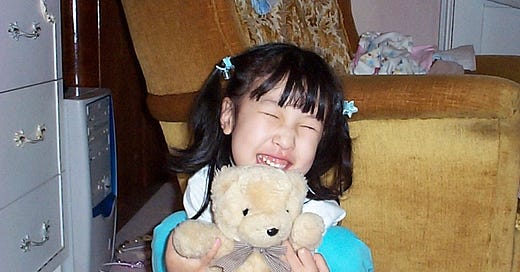slipping through my fingers
postcard 41: on an ode to growing up as a reader, ephemeralities of childhood, and growing pains
There is a sort of beautiful sadness in growing up.
Nothing feels the same anymore, and all that is different only exists in memories. Nostalgia that I feel like I can taste on the tip of my tongue if I try hard enough. It tastes like the first snowfall, the sliced apples my mom used to bring me; feels like the sleepovers I had with my childhood friends, the matted fur of my first teddy bear; smells like the cheap rolled up posters of One Direction and Taylor Swift I stuck on my wall with Blu-Tac, frazzled yellowed paperback copies coated with shiny library plastic,



